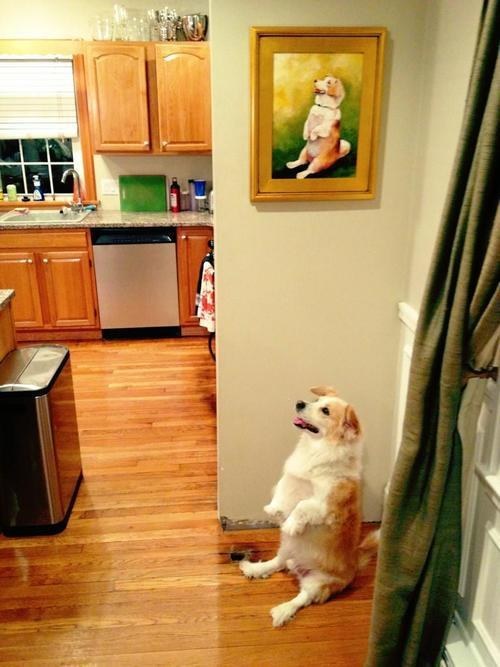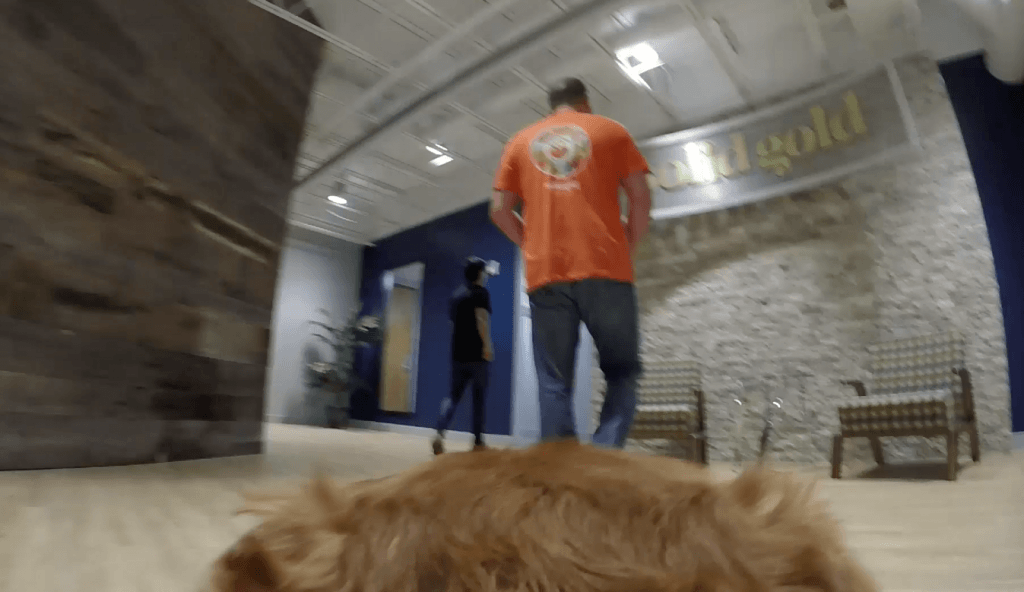We know dogs are smart. They can follow complex instructions, they can guide the blind, and even detect cancer and other disease, but how far do their cognitive abilities actually go? A new study recently found that dogs are actually capable of using deceptive tactics to get their treats.
The study, published in the journal Animal Cognition , was conducted by the Department of Evolutionary Biology and Experimental Studies at the University of Zürich. The idea for the study was born when Lead Researcher, Marianne Heberlein, began observing her pet dogs engaging in deceptive behavior. For example, one of her dogs would sometimes pretend to see something interesting outside, prompting the other to give up his sleeping spot.
Heberlein and her team decided to look into these observations, and investigate whether dogs engage with the same deceptive behavior with humans. The study paired 27 dogs with two different partners. One of the dog’s partners would go to the bowl of the dog, take a treat, and give it to them. The other partner would show the treat to the dog, and then put it in her pocket. The dogs began to show a preference for the generous partners and would approach them. Once one of the partners was established as cooperative and the other as competitive, the dogs were taught to lead their partners to one of two boxes that both contained food. The partner would then say the command "Show me the food,” and the same pattern was repeated. When the dogs led the cooperative partner to a treat, they got to eat it. The competitive partner withheld the treat. They then showed the dogs three covered boxes. One contained a sausage, the second contained a dry biscuit, and the third was empty. The same process was repeated, but this time with a twist: when the dog was reunited with its owner, the owner asked it to choose one of the boxes. If there was a treat inside the box, the dog was allowed to eat it. But if the dog chose the box which had been opened before, the owner showed the empty box to the dog.
Over the course of two days, the dogs were repeatedly presented with this process. At this point, they had been trained to lead both partners to boxes containing food, but they knew that the competitive partner would not let them have their treat. If any snacks remained inside the boxes once they were reunited with their owners, they would get a chance to eat them. This is when researchers observed the dogs leading the cooperative partner to the box containing the sausage more often than expected. They led the competitive partner to the sausage less often than expected. And here’s where things get really interesting: the dogs took the competitive partner to the empty box more frequently than the cooperative partner, suggesting that they were working through their options and engaging in deliberate deception to maximize their chances of getting both treats.
Psychologist Stanley Coren explains, "It is as though the dog is thinking, why should I tell that selfish person where the best treat is if it means that I will never get it?”
These results show that dogs can actually distinguish between cooperative and competitive partners, and adjust their behavior accordingly. So the next time you give your dog a treat, think twice about who’s treating who, and make sure it's a Solid Gold treat !







